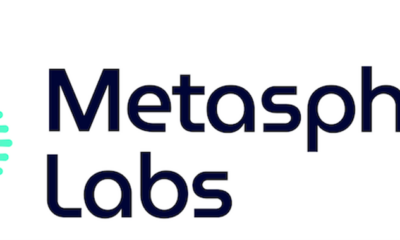Tech
A new technology law in Switzerland secures the legal environment and allows blockchain to thrive

In September 2020, Switzerland passed reforms collectively called the Distributed Ledger Technology (DLT) Act. The parts of the DLT Law that allow for the introduction of register-based securities came into force on 1 February 2021.
Part of this law introduces newly defined uncertificated registry securities or “Registerwertrecht” – digital securities that can be transferred without banks or intermediaries, unlike traditional securities. What implications does this new security category have for the issuance and trading of digital assets?
This new formal type of security is important because it creates legal certainty regarding the ownership and transfer of those tokens, in particular that (a) they represent a claim against third parties (e.g. right to payment of interest against the issuer of the token ) or (b) a company right under company law and can therefore be considered a guarantee. These “counterparty tokens” include tokens that are not pure payment tokens (such as cryptocurrencies like Bitcoin and Ethereum) or pure utility tokens.
Legal certainty is important to access the full potential of blockchain technology and enable Switzerland to maintain its position as an attractive destination for the issuance of DLT-based securities.
According to Swiss law, credits can only be transferred in writing. This means that theoretically an assignment contract must be signed manually or via digital signature. As it stands, if a request token is transferred without one of these, the transfer is effectively neither valid nor legally binding. However, this additional administrative layer is useless in the context of automated DLT applications.
Under the new law, these tokens will be able to be issued and transferred as uncertified registry securities within the token registry and DLT system without the anachronistic signature procedure. This legal framework provides further certainty regarding the valid transfer of ownership of such securities and places Switzerland ahead of most jurisdictions.
Could a company with common shares listed on the Swiss Stock Exchange and wishing to issue digital equity securities face legal or administrative challenges?
The company would have to amend its articles of association to include uncertified registry securities that would require shareholder consent and related formalities such as certification by a notary.
It is basically possible for a company to issue securities using different methods (such as traditional physical issuance of shares and issuance of uncertificated registry-registered securities) while a shareholding register on the blockchain is considered a valid shareholder register. However, the company should ideally maintain in some way a consolidated overview of the securities held in the different shareholder registers.
DLT trading facilities were introduced as a new type of exchange for digital assets, enabling trading by private clients, trading of cryptocurrencies (as a secondary activity to trading DLT securities), and on-chain settlement. However, CCPs still play a role in terms of clearing and supervision. Is there still a long way to go before we see a fully decentralized cryptocurrency platform operating in Switzerland?
At the moment, we are only halfway between the traditional world and what will likely turn out to be a more decentralized world with this new legislation – and that is the key.
The new law does not provide a legal basis for fully decentralized structures. The principle is to maintain an entity that controls the DLT trading structure and is responsible if something goes wrong, and that means fitting the new technology into the existing legal framework.
These DTL trading institutions are traditional institutions, meaning they are companies established with a license from the regulator to operate a DLT trading facility. The setup is still conventional, at least in terms of licensing requirements. The company will have to demonstrate to the Swiss Financial Market Supervisory Authority (FINMA) that it has sufficient guarantees in terms of capital reserves and operational structures to manage onboarding and trading, including compliance (AML, KYC).
The novelty concerns the way in which trading takes place using DLT securities. Furthermore, there are new implications in terms of combining and automating clearing, settlement and payment. Everything else is quite traditional.
The new regulatory framework for custody providers clarifies the treatment of digital assets in the event of custodian bankruptcy (in favor of customers). Does this improve custodial services from a customer or intuitive perspective?
The new DLT law clarifies that in the event of bankruptcy of the custodian, the digital assets do not become part of the bankruptcy estate but are assigned directly to the customer in certain circumstances. This represents a great advantage for the customer as the counterparty risk is largely eliminated.
It is necessary that the assets are assigned to a specific client and have been issued, for example on the basis of DLT. However, it is not necessary to record the assignment to a customer on the blockchain itself. This means that institutions can hold digital assets in omnibus accounts, which is beneficial for institutions from an operational and cost perspective. In extreme cases, an Excel table could theoretically be sufficient for the allocation of digital assets, although such a solution cannot be expected to be accepted by FINMA or the auditor.
It is also very positive for the institution because the asset is not held on its balance sheet and as such does not attract liquidity or capital requirements.
The SEC’s action against Ripple Labs (the company behind the XRP token) has brought to the fore the discussion of what constitutes “digital asset security” in the United States. How important is the distinction between cryptocurrencies and securities and how are they considered in Switzerland?
In the United States, Ripple’s control of XRP has led to legal action by the SEC on the grounds that XRP is a security.
From a Swiss legal perspective, the use of the token is the determining factor. If the functionality is limited exclusively to payments, the token is generally not considered a security in Switzerland. If cryptocurrency does not constitute a right against a third party, it generally does not constitute a security in the legal sense. Even if the token has voting rights associated with it, for example to determine protocol changes, the token is still unlikely to be classified as a security; it is more likely to be considered a utility token.
The classification of Bitcoin as a financial instrument has also been highly debated in various jurisdictions. In Switzerland, however, it is clear that Bitcoin and other payment tokens are private means of payment and therefore not securities.
These clear definitions make issuing cryptocurrencies in Switzerland attractive as they provide legal certainty. In the United States, for example, authorities are much quicker to consider a token as a risky security.
In case the token does not qualify as a security or financial instrument, there are much fewer legal and regulatory requirements from a financial market perspective. For example, trading in securities requires a securities trading license, which is not the case for trading exclusively in cryptocurrencies in Switzerland.
Furthermore, institutions that manage or advise on financial instruments must meet additional requirements in terms of verifying the suitability and suitability of the product for a client.
How is DLT regulated in Switzerland and how does the process of changing laws and regulations work? Is it significant that Switzerland changed existing federal laws instead of creating new legislation?
Unlike Liechtenstein, Gibraltar or Malta, Switzerland does not have specific legislation regarding DLT.
The new law that comes into force is not actually a stand-alone law and is formulated largely in a technology-neutral way. It is, in fact, a general act that amends existing laws, including specific amendments to civil law (regarding securities), the Financial Market Infrastructure Law (DLT Trading System), the Banking Law and securities regulations. failures.
Personally, I think it’s a good way to approach the question because we don’t know what future technological innovations will emerge. If we create a new law specifically for existing innovations, it will potentially need to be constantly adapted. The wording of changes should be as principled as possible to easily accommodate future changes.
Furthermore, having a single and autonomous law becomes a challenge when it is necessary to implement it. If there is not a sufficiently close connection with the existing legal framework, questions will arise and gaps will exist, at least until practice and jurisprudence catch up.
Interview conducted by Stephanie Hurry, Olabisi Ayodeji, Matteo Conti and Emon Goswami
PwC’s banking, fintech and blockchain legal services include regulatory guidance and legal advice for both established financial institutions and start-ups.
This is the eleventh edition of Fintech Chain Mail. You can access the complete series Here.
Tech
Hollywood.ai by FAME King Sheeraz Hasan Promulgates a Complete Ecosystem that Unites Web3, Cryptography, AI and Entertainment for Spectacular Global Tech Innovation

The one and only FAME King Sheeraz Hasan is launching Hollywood.ai, a revolutionary platform designed to integrate the cutting-edge realms of Web3, cryptocurrency, AI, finance and entertainment. This revolutionary initiative is set to create a seamless, interactive and intuitive ecosystem where the world’s leading technology luminaries can collaborate on innovations, ultimately redefining the future of digital interaction.
Hollywood.ai represents the convergence of the most complex technologies of all time. Fusing Web3 principles, cryptocurrency utilities, AI advances, and financial machinery, Sheeraz’s platform aims to become the nucleus for innovation and modernization. It provides a high-tech environment where technology and creativity collide harmoniously, paving the way for new paths in the digital economy.
A defining feature of Hollywood.ai is the integration of cryptocurrency into the AI ecosystem, transforming AI into a tokenized asset with full cryptographic utility. Sheeraz’s novel approach presents new avenues to leverage the myriad capabilities of AI in the financial realm, unlocking unprecedented opportunities for developers and users alike. Through the amalgamation of AI and cryptocurrency, Hollywood.ai is paving the way for an incredibly interconnected digital space unlike anything seen before.
The platform’s design emphasizes the undeniable symbiosis between various technology sectors. Under Sheeraz’s careful orchestration, Web3 technologies facilitate decentralized collaboration, while AI tools offer enhanced potential for data analytics, content creation, and audience engagement. Additionally, the inclusion of financial innovations ensures rapid mobility of both monetization and investments, providing a holistic environment that meets the ever-evolving demands of the technology and entertainment segments.
Sheeraz’s Hollywood.ai is poised to become the premier hub for industry leaders, developers, and creators to support and empower the next generation of digital experiences. This initiative aspires to drive the emergence of new tools, applications, and services that set new standards for advanced engagement and interaction.
Known for making the impossible possible, Sheeraz envisions a future where global audiences actively participate in designing the next A-list stars from scratch. Hollywood.ai will allow users to watch their creations evolve from simple concepts to 3D talents that can act, sing and perform just like human actors.
The Hollywood.ai platform leverages AI technology to deliver personalized fan engagement, real-time sentiment analysis, and informed content creation. By combining cutting-edge AI capabilities with Sheeraz’s deep understanding of celebrity branding, Hollywood.ai gains immense control over public figures.
Undeniably, FAME’s number one strategist Sheeraz Hasan continues to cement his reputation as a pioneer in the fields of FAME and technology. The power and influence of this latest development brings him closer to total world domination.
Tech
Online Broker Futu Offers Cryptocurrency Trading in Hong Kong, With Nvidia and Alibaba Stock as Rewards

Futu Securities International, Hong Kong’s largest online broker, has launched retail cryptocurrency trading in the city, offering shares of Alibaba Holding Group AND Nvidia as a reward in an attempt to attract investors. Futu has begun allowing Hong Kong residents to trade Bitcoin and ether, the world’s two largest cryptocurrencies, directly on the brokerage platform using Hong Kong or U.S. dollars, the company announced Thursday.
The online retail broker said last month that it had received an upgrade to its securities license from the Securities and Futures Commission (SFC), allowing Futu to offer virtual asset trading services to both professional and retail clients in the city.
Futu’s move comes as Hong Kong seeks to boost its attractiveness as a business hub for virtual assets, with the city government launching a series of new cryptocurrency policy initiatives over the past two years, including a mandatory licensing regime for cryptocurrency exchanges.
In addition to offering cryptocurrency trading on its flagship brokerage app, Futu is also seeking a cryptocurrency trading license for its new PantherTrade platform. That platform is among 11 in Hong Kong that are currently “deemed licensed” for cryptocurrency trading, an arrangement that allows them to operate in the city while they await full approval from the SFC.
Hong Kong’s progress in becoming a crypto hub has encountered various challenges, including exit of the major global platforms and relatively low trading activity for cryptocurrency exchange-traded funds offered on local stock exchanges.
Futu is now offering a series of incentives to potential investors, amid a cryptocurrency bull market that has seen the price of bitcoin rise 45 percent this year.
Hong Kong investors who open accounts in August and deposit HK$10,000 (US$1,280) over the next 60 days can receive HK$600 worth of bitcoin, a HK$400 supermarket voucher or a single Chinese stock. e-commerce giant Alibaba. Alibaba owns the South China Morning Post.
By holding 80,000 U.S. dollars for the same period, users can get 1,000 Hong Kong dollars in bitcoin or a share of U.S. artificial intelligence (AI) chip maker Nvidia, whose shares have risen more than 140 percent this year.
A Futu representative said the brokerage firm will also waive cryptocurrency trading fees starting Thursday until further notice.
Futu is the first online brokerage in Hong Kong to allow retail investors to buy cryptocurrency directly on its platform. SFC rules require it to offer this service through a tie-up with a licensed cryptocurrency exchange. Futu is partnering with HashKey Exchange, one of only two licensed exchanges in Hong Kong, according to the representative.
Futu’s local rival Tiger Brokers also said in May that it had begun offering cryptocurrency trading services to professional investors on its platform following a license update. The SFC defines professional investors as those with more than HK$8 million in their investment portfolios or corporate entities with assets exceeding HK$40 million.
Tech
Tech Crash: $2.6 Trillion Market Cap Vanishes as ‘Magnificent 7’ Prices Stumble

A group of seven megacap tech stocks, often called the Magnificent 7, have lost more than $2.6 trillion in value over the past 20 days, or an average of $125 billion per day over the period. In total, these stocks have lost “three times the value of the entire Brazilian stock market.”
This according to the economic news agency Letter from Kobeissiwho noted on the microblogging platform X (formerly known as Twitter) that the Magnificent 7 batch “is worth as much as Nvidia’s entire current market cap in 20 days,” with Nvidia itself having lost $1 trillion from its high.
Source:Letter from Kobeissi on the X
The group, which includes Nvidia, Microsoft, Amazon, Apple, Alphabet, Meta and Tesla, has undergone a significant correction: in the last 20 days Nvidia has lost 23% of its value, or about $800 billion, while Tesla has fallen 19%, losing $164 billion.
Microsoft, Apple, Amazon, Alphabet and Meta all posted losses of between 9% and 15%, losing between $257 billion and $554 billion in market capitalization, wiping out a total of $200 billion more “than every single German stock market tock combined.”
Tech titans, which have outperformed the broader S&P 500 index since the market bottom of 2022, are now facing a reckoning as investors grow increasingly wary about the sustainability of their meteoric rise, with Nvidia taking the lead soaring 110% since the beginning of the year and over 2,300% in the last five years.
Earnings reports from these companies, starting with Microsoft and culminating with Nvidia in late August, will be closely watched for signs of weakness. Their performance could set the tone for broader market sentiment, with implications for everything from cryptocurrency to other high-risk assets.
Their poor performance comes after a leading macroeconomist, Henrik Zeberg, reiterated his forecast of an impending recession that will be preceded by a final wave in key sectors of the market, but which can potentially be the worst the market has seen since 1929the worst bear market in Wall Street history.
In particular, the Hindenburg Omen, a technical indicator designed to identify potential stock market crashes, began flashing just a month after its previous signal, raising concerns about a possible impending stock market downturn.
The indicator compares the percentage of stocks hitting new 52-week highs and lows to a specific threshold. When the number of stocks hitting both extremes exceeds a certain level, the indicator is said to be triggered, suggesting a greater risk of a crash.
Featured Image via Disinfect.
Tech
Trump Fights for Cryptocurrency Vote at Bitcoin Conference

To the Bitcoin Conference 2024 In Nashville, Tennessee, former President Donald Trump delivered a keynote speech.
Trump, the Republican presidential candidate, used the platform to appeal to the tech community and solicit donations for the campaign. During the conference, He said:
I promise the Bitcoin community that the day I take the oath of office, Joe Biden and Kamala Harris’ anti-crypto crusade will be over… If we don’t embrace cryptocurrency and Bitcoin technology, China will, other countries will. They will dominate, and we can’t let China dominate. They are making too much progress as it is.
Trump’s speech focused heavily on cryptocurrency policy, positioning it as a partisan issue. He said that if reelected, he would fire SEC Chairman Gary Gensler on his first day in office, a statement that drew enthusiastic applause from the audience. This statement marked a stark contrast to Gensler’s tenure, which has been characterized by rigorous oversight of the cryptocurrency industry.
The former president outlined several pro-crypto initiatives he would undertake if elected. These include transforming the United States into a global cryptocurrency hub, keeping all government-held Bitcoin as a “national Bitcoin reserve,” establishing a presidential advisory council on Bitcoin and cryptocurrency, and developing power plants to support cryptocurrency mining, emphasizing the use of fossil fuels.
Trump’s current embrace of cryptocurrencies represents a reversal from his stance in 2021, when described Bitcoin as a “scam against the dollar.” He also noted that his campaign has received $25 million in donations since accepting cryptocurrency payments two months ago.
The event featured other political figures, including Republican Senators Tim Scott and Tommy Tuberville, as well as Democratic Representatives Wiley Nickel and Ro Khanna. Independent presidential candidate Robert F. Kennedy Jr. also spoke at the conference.
Trump’s appearance at Bitcoin 2024 reflects growing support for his campaign from some tech leaders, including Tesla CEO Elon Musk and cryptocurrency entrepreneurs Cameron and Tyler Winklevoss.
While Trump has described the current administration as “anti-crypto,” Democratic Congressman Wiley Nickel said Vice President Kamala Harris is taking a “forward-thinking approach to digital assets and blockchain technology.”
This event underscores the growing political importance of cryptocurrency policy in the upcoming presidential election.
Kamala Harris and Democrats Respond on Cryptocurrencies
In a strategic move to repair strained relations, Vice President Kamala Harris’ team has initiated a dialogue with major cryptocurrency industry players. This outreach aims to restore the Democratic Party’s stance on digital assets and promote a more collaborative approach.
THE Financial Times reports that Harris’s advisors have reached out to representatives from industry leaders like Coinbase, Circle, and Ripple Labs. This move comes as the cryptocurrency community increasingly supports Republican candidate Donald Trump, reflecting growing dissatisfaction with the current administration’s cryptocurrency policies.
THE disclosure follows a letter from Democratic lawmakers and 2024 candidates urging the party to reevaluate its approach to digital assets. Harris’s team stresses that this effort is less about securing campaign contributions and more about engaging in constructive dialogue to develop sensible regulations.
The move is part of a broader strategy to reshape the Democratic Party’s image among business leaders, countering perceptions of an anti-business stance. Harris’ campaign aims to project a “pro-business, responsible business” message.
-

 Videos9 months ago
Videos9 months agoCrypto News: Bitcoin, ETH Price, CPI Print, PYTH, WIF & MORE!!
-

 Videos9 months ago
Videos9 months agoCrypto News: Bitcoin Price, ETF, ETH, WIF, HNT & MORE!!
-

 DeFi9 months ago
DeFi9 months agoMetasphere Labs announces follow-up event regarding
-

 Videos9 months ago
Videos9 months agoSolana price potential?! Check out THIS update if you own SOL!!
-

 Videos8 months ago
Videos8 months agoWho Really CONTROLS THE MARKETS!! Her plans REVEALED!!
-

 DeFi6 months ago
DeFi6 months agoPump.Fun Overtakes Ethereum in Daily Revenue: A New Leader in DeFi
-

 News6 months ago
News6 months agoNew bill pushes Department of Veterans Affairs to examine how blockchain can improve its work
-

 DeFi6 months ago
DeFi6 months agoDegens Can Now Create Memecoins From Tweets
-

 News6 months ago
News6 months agoLawmakers, regulators to study impact of blockchain and cryptocurrency in Alabama • Alabama Reflector
-

 Bitcoin6 months ago
Bitcoin6 months ago1 Top Cryptocurrency That Could Surge Over 4,300%, According to This Wall Street Firm
-

 Ethereum8 months ago
Ethereum8 months agoComment deux frères auraient dérobé 25 millions de dollars lors d’un braquage d’Ethereum de 12 secondes • The Register
-

 Videos8 months ago
Videos8 months agoCryptocurrency News: BTC Rally, ETH, SOL, FTM, USDT Recover & MORE!





